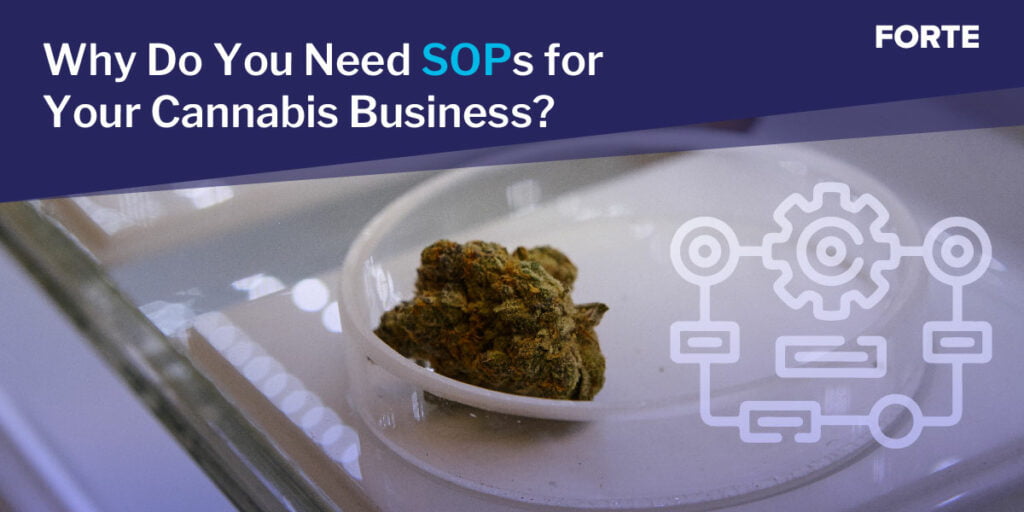Mississippi’s cannabis industry is experiencing a significant transformation after the legalization of medical marijuana in 2022. But it’s not just the legalization that’s creating a buzz, it’s the state’s new proposed regulations. However, what’s really catching people’s attention isn’t just long-awaited revisions – it’s the notable changes highlighted in red! The Mississippi Department of Health has highlighted the new changes, and strict provisions, especially the need for detailed Standard Operating Procedures (SOPs).
What Do You Mean by SOPs?
Standard operating procedure aka SOPs is detailed and step-by-step written instructions to perform the daily operations smoothly and seamlessly. SOPs are the how-to guides that help run your business on the right track without missing out on any vital step or procedure.
What Are the New Standard Operating Procedures Requirements?
According to the Mississippi State Department of Health, every licensee must create and uphold written standard operating procedures on-site for the following:
1. Security
- Alarm & surveillance systems shall transmit a signal directly to the law enforcement agency and a central protection company about the unauthorized entry or attempted unauthorized entry
- Provide continuous and uninterrupted coverage (24 hours/7 days) for all points of ingress and egress
- Should remain operational during a power outage
- On-site and off-site monitoring capabilities
- Date & time should be embedded on all recordings
- Should have digital archiving capabilities for at least 120 days
2. Employment practices adhering to federal law & state law
3. Record-keeping
- Employment records
- Records of any theft, loss, or other unaccountability of any cannabis and cannabis products.
- Should keep records of all pesticides and chemical applications to cannabis and cannabis products
- Application date
- Name of the individual making the application
- Name of the product that is applied
- Amount of product that was applied
- A copy of the label of the product that was applied
4. Preventing the diversion/inversion of cannabis or cannabis products.
5. Types and quantities of cannabis products that will be produced at the cannabis cultivation facility (licensed cultivators, processors, micro-cultivators, and microprocessors).
6. Methods of cultivation or growing plants, harvesting, drying, and storage of cannabis and cannabis products.
7. Production of cannabis and cannabis products.
8. Integrated Pest Management Plan
9. Inventory control and tracking
10. Procedures for proper labeling and packaging
11. Transportation of cannabis and cannabis products (need to obtain a separate license for this)
12. Waste disposal (need to obtain a separate license for this).
13. Recall of cannabis and cannabis products.
What are Other Essential Provisions for Mississippi?
As per the new regulations of Mississippi, the selection, weighing, and measuring of ingredients and the determination of finished yield should be reviewed by a second individual.
Standard operating procedures should be written in a way to eliminate errors of interpretation and loss of information.
Major equipment, transfer lines, containers, and tanks used to fill holding or processing are identified to indicate contents, batch identification, stage of processing, and control status must be addressed in the standard operating procedures.
SOPs must contain in-process controls to ensure product uniformity, integrity (like in-process batch weights), accurate fill of mixing containers, and adequacy of mixing.
SOPs must contain the appropriate measures to prevent contamination with microorganisms, chemicals, filth, or other extraneous material.
SOPs should address the theoretical yield for a production batch compared with the actual yield to ensure correctness.
The finished packing of the products should contain meaningful, permanent, and unique batch numbers.
The storage and handling of packaging cannabis and cannabis products should be directly in contact with the product to prevent mix-ups and microbiological or chemical contamination.
What About Sanitary Operations?
Revised and improved regulations also address sanitation operations which include cleaning and sanitizing of utensils and equipment, pest control, safe use and storage of toxic materials, contamination prevention, and sanitation of non-contact and contact surfaces. It also includes hand-washing stations, sewage disposal, restroom facilities, potable water supply, and plumbing.
Staying updated about new regulations and their complex provisions is undoubtedly very crucial, but equally important is the assurance that you don’t miss any essential SOPs requirements. And this’s where cannabis experts come into the picture. Their in-depth knowledge and experience are invaluable, whether it’s in creating SOPs or addressing various compliance aspects. Their expertise can truly make a significant impact on your business success.
How Forte Can Help?
Forte can provide a set of SOPs that will guide you in obtaining a medical and retail license in Mississippi. Forte has a team of skilled, experienced, and qualified experts who work really hard to ensure the SOPs are clear, effective, and up to date.
But that’s not all—Forte can also create customized SOPs tailored to your specific requirements. With all the necessary SOPs at your fingertips, you can stay updated with the licensing requirements and compliance to make your cannabis business a hit.




